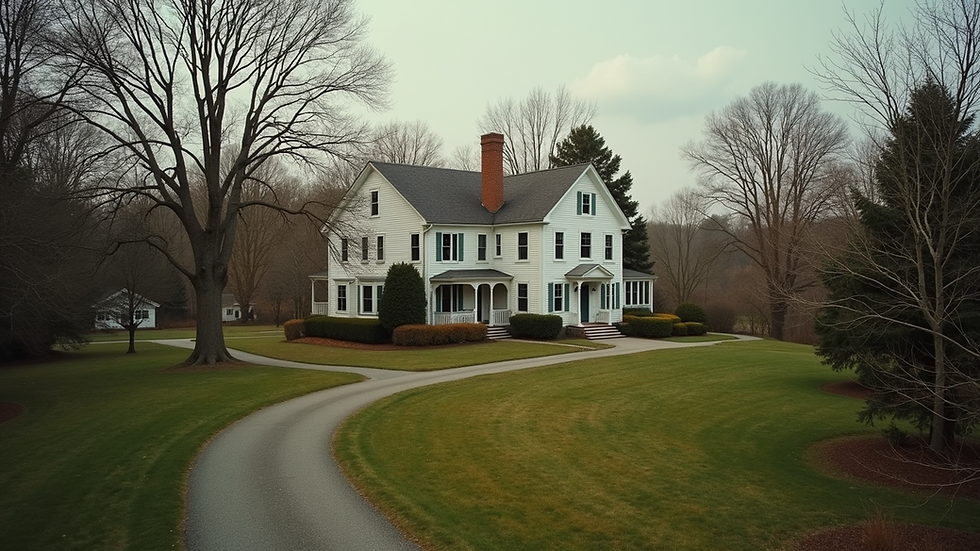Navigating the Unique Challenges of Managing Properties in New England
- Katie Harevich
- Jun 16
- 4 min read
Managing properties in New England comes with a distinct set of challenges due to the diverse geography, weather conditions, and market dynamics. From suburban homes in Massachusetts to coastal properties in Maine, every region presents unique hurdles that property managers must navigate. In this blog post, we will explore some of the most pressing issues faced by those managing properties in New England and offer practical solutions to overcome them.
Understanding New England Properties
New England encompasses six states: Maine, New Hampshire, Vermont, Massachusetts, Rhode Island, and Connecticut. Each state has its own real estate nuances. For example, while Massachusetts boasts a robust real estate market with urban centers like Boston, Vermont offers a quieter, rural atmosphere that can affect property demand and management strategies.
When managing properties in such an eclectic region, it’s important to conduct thorough research on property types that are most desirable in each state. For instance, coastal properties in Maine attract vacationers, while historic homes in Massachusetts often appeal to long-term tenants.

Real estate trends also vary within states. In urban areas, demand may be driven by increasing job opportunities, whereas rural areas may see a seasonal influx of tenants during peak tourist seasons. Understanding these trends is essential for effective property management and maximizing return on investment.
Seasonal Weather Considerations
New England is notorious for its unpredictable weather, particularly the harsh winters and humid summers. These conditions can create several challenges for property management. Winter snowstorms can cause damage to roofs, sidewalks, and parking lots, while summer heat can lead to increased demand for air conditioning and proper ventilation.
To prepare for winter, property managers should ensure that roofs are inspected and repaired as necessary, gutters are cleared of debris, and snow removal contracts are in place. It's also essential to inform tenants about winter maintenance procedures and safety measures, such as how to prevent pipes from freezing.

In the summertime, the heat can lead to rising cooling costs. Property managers should inspect air conditioning systems annually to ensure efficiency. Installing energy-efficient units can significantly reduce costs and improve tenant satisfaction.
Navigating Legal Requirements
Each state within New England has its own legal landscape regarding property management. From tenant rights to eviction processes, being informed about local laws is critical. For instance, Massachusetts has stringent tenant protection laws, including restrictions on eviction and rent control in certain areas.
It's advisable to stay up-to-date with local legislation and work with legal professionals to navigate complex scenarios. Property managers should also maintain clear communication with tenants regarding lease agreements, security deposits, and maintenance responsibilities. This transparency helps build trust and minimizes potential disputes.
Additionally, understanding fair housing laws is essential. Discrimination based on race, color, religion, sex, national origin, familial status, or disability is illegal. Property managers must ensure their practices comply with these laws to foster an inclusive living environment.
Maintenance Challenges
Maintaining properties in New England presents unique challenges, especially with older buildings that may require special care. Many properties in the region are historic and may have specific regulations regarding renovations and maintenance.
Regular inspections are essential to identify and address maintenance issues before they escalate. Managers should create a schedule for routine checks of plumbing, electrical systems, and structural integrity. Implementing preventative maintenance can save time, money, and headaches in the long run.

Engaging a reliable network of service providers, such as plumbers and electricians, can streamline the process of addressing maintenance issues. Developing relationships with local contractors can also lead to better pricing and quicker response times in emergencies.
Marketing Strategies for New England Properties
Effective marketing strategies are crucial for attracting tenants to New England properties. Utilizing online platforms is essential, particularly in a highly digital world. Create comprehensive listings with high-quality photos, detailed descriptions, and 360-degree virtual tours whenever possible.
Seasonal marketing can also be beneficial. Highlighting the unique features of properties during different times of the year can resonate with potential tenants. For example, marketing a property with a fireplace in the winter or showcasing the outdoor space during the summer can help attract interested renters.
Social media platforms are another effective means of promoting properties. Utilize visuals and engaging content to reach a wider audience. Local events, community highlights, and industry trends can also be shared, helping to establish your platform as a go-to resource for prospective tenants.
Tenant Relations and Community Engagement
Building strong tenant relations is integral to successful property management. Engaging with tenants fosters a sense of community and enhances tenant retention. Creating opportunities for tenants to get involved, such as community events or feedback forums, can improve overall satisfaction.
Regular communication is key. Notify tenants about maintenance schedules, community events, or important updates. Utilizing emails or community bulletin boards can keep everyone informed. Moreover, being responsive to tenant feedback can help address issues proactively and build trust.
It's beneficial to create a strong online presence where tenants can easily reach out with concerns or suggestions. This approach not only demonstrates a commitment to their well-being, but it also enhances the overall management experience.

Final Thoughts on New England Property Management
Managing properties in New England is not without its challenges, but with the right strategies in place, property managers can effectively navigate these hurdles. From understanding local markets and legal requirements to focusing on maintenance and tenant engagement, a comprehensive approach is vital.
For those involved in new england property management, continuous education and a proactive mindset will lead to successful outcomes. Each property owner must stay informed, adaptable, and responsive to the unique demands of this beautiful yet unpredictable region.
By implementing the suggestions above, property managers can set themselves up for success, ensuring they provide exceptional service and maintain thriving communities in New England.



Comments